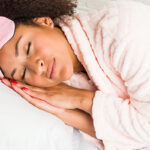How Much Does a Sleep Study Cost
If you’ve been struggling to achieve quality sleep for some time now, your doctor might suggest or order you to undergo a sleep study. Also known as a polysomnography, sleep studies are used to help doctors diagnose a wide range of sleep disorders including sleep apnea, REM sleep behavior disorders, insomnia, narcolepsy, RLS (restless leg syndrome), periodic limb movement disorder and other nighttime behaviors like sleepwalking.
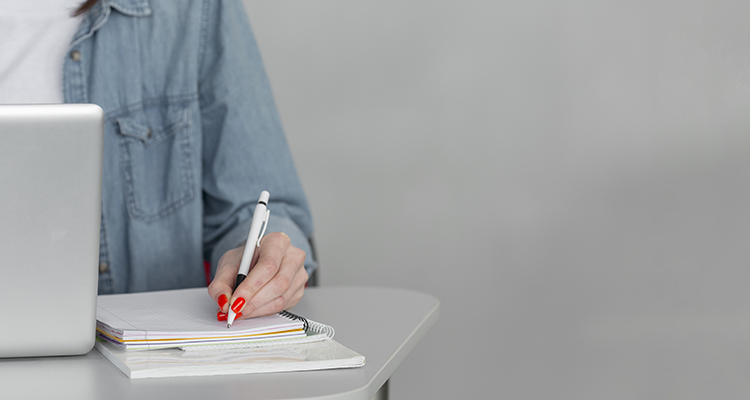
In most cases, these sleep disorders can’t be identified using a traditional office visit. Doctors and sleep specialists need to observe your behaviors while you’re actively at rest. Similar to prescription medications used to treat certain disorders, you have to pay for a sleep study. But how much does a sleep study cost and is it worth it?
In this article, we’ll cover the average costs of a sleep study, what they involve, and what to expect if you’re required to take one.
Content
How Does a Sleep Study Work and What to Expect
Sleep studies are non-invasive overnight tests where a doctor monitors your sleep behaviors. Using high-tech equipment and visual observations, a sleep specialist can evaluate what happens to your brain and body during sleep.
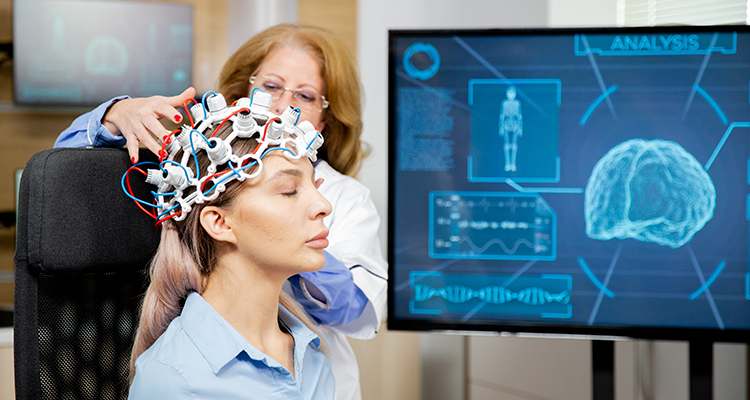
Most sleep studies require you to stay overnight at a sleep lab. These studies are conducted at either a hospital, doctor’s office, or sleep center. When you first arrive for your sleep study, the technician will place small sensors on your head and body. These are attached using a mild adhesive. Wires that extend from these sensors are attached to a nearby computer. The wires give you enough slack so that you can freely move around while you sleep.
The computer or EEG (electroencephalography) monitors brain activity as you move through each stage of sleep, including REM and nonREM sleep cycles. Doctors take note of any potential sleep disruptions or disturbances in your sleep patterns. Sleep studies also measure things like your blood oxygen levels, your eye movements, your heart rate, your breathing rate, if you snore, and all other body movements. All of these behaviors can help sleep specialists determine what’s causing your sleep troubles so they can ultimately diagnose your sleep disorder.
Most sleep studies and sleep centers are run by technicians and overseen by doctors and sleep specialists. After the technician gathers the data from your test, they will send the results to a professional who will then evaluate them and make a determination about your condition. While there’s no standard timeline for getting the results of your sleep study, most patients can expect to receive a diagnosis within 2 weeks. Oftentimes, your doctor will request an in-person meeting to discuss the results. At this time, you can ask any questions you have. You and your doctor will also discuss a treatment plan moving forward.
Types of Sleep Studies
Using an EEG isn’t the only way to conduct sleep studies. Depending on your symptoms and the doctor’s method of choice, your sleep study may also involve the following methods.
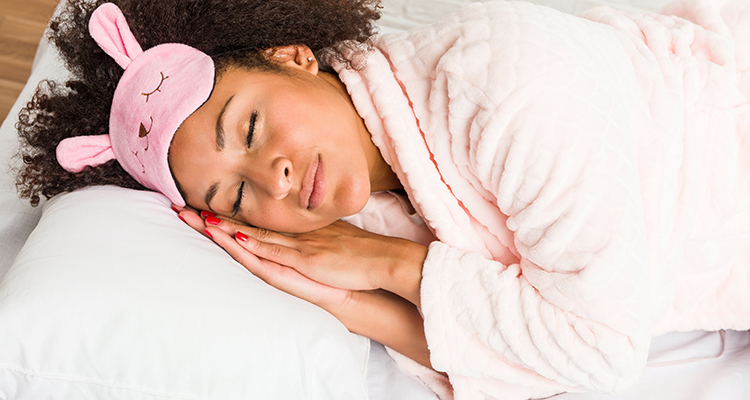
Multiple Sleep Latency Test
This test is used to measure how quickly you fall asleep or your sleep latency. It also determines how long it takes you to enter REM sleep when taking a daytime nap. Multiple sleep latency tests are primarily used to diagnose excessive daytime drowsiness, which in many cases is linked to narcolepsy and other unknown causes.
CPAP Titration
A CPAP (continuous positive airway pressure) machine is commonly used to treat patients suffering from sleep apnea. If your doctor has already determined that you suffer from sleep apnea, a CPAP titration test is used to determine how much pressure you need from the CPAP machine. This ensures you achieve healthy levels of oxygen and consistent airflow during the night to prevent snoring, improve breathing, and facilitate sleep.
Even if you’ve already had an initial sleep study to diagnose your sleep apnea, if the doctor determines you could benefit from a CPAP machine, you may need this second study. Some sleep specialists also use a split-night sleep study for treating sleep apnea patients. This type of study involves using a polysomnography to diagnose sleep apnea for the first half of the night followed by a CPAP titration during the second half of the night (study). This allows the doctor to order you a CPAP machine so you can successfully use it at home.
Home Sleep Apnea Test
Not all sleep studies are done at a sleep center. Now more than ever, sleep apnea tests can actually be done in the comfort of your own home. This is especially helpful for people uncomfortable with sleeping in strange or different environments, like a sleep lab.
With a home sleep apnea test, you’ll receive all of the tools you need in the mail. The test itself collects and tracks all the same data as a traditional polysomnography including your breathing, heart rate, snoring frequency, and oxygen levels. One downside to this type of sleep study is that it doesn’t provide the same level of comprehensive data as a sleep study performed in a controlled environment under the guidance of a trained technician.
How Much Does a Sleep Study Cost?
Now that you know a little bit more about the different types of sleep studies, how they work, and what sleep disorders they can diagnose, let’s talk about the price. Similar to other medical procedures and diagnostic testing, you’ll need to pay for your sleep study. While some studies are covered by your health insurance, coverage varies from one patient to the next.
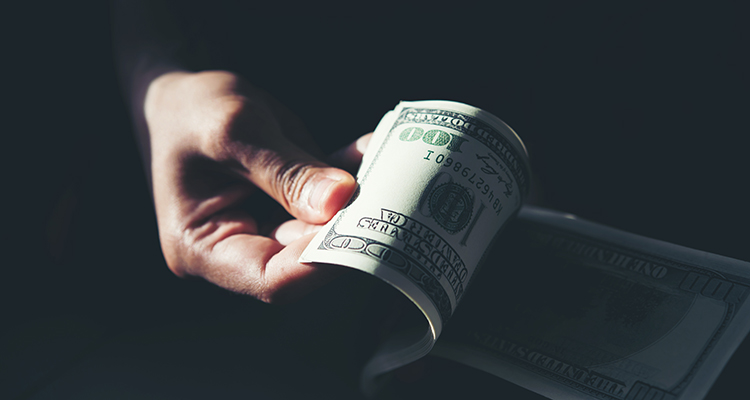
The price of the sleep study may also change depending on your location, the doctor, and the type of study it is. Small clinics and facilities usually charge less than larger practices, hospitals, and sleep centers. The best way to determine the cost of your sleep study is to speak with the clinic beforehand.
On average, sleep studies can cost between $1,000 and $7,000 dollars. Most insurance companies including Medicare cover the main types of sleep studies like those used to diagnose sleep apnea. In many cases, patients are required to pay the initial cost of the study upfront and are later reimbursed for their out-of-pocket costs.
According to one study, the national average in the US for a sleep study is $3,075. This price is for a sleep study conducted at a certified sleep center, in a medical facility or at a hospital. Another report calculated the average cost of a sleep study to be slightly lower in some cases but with a much broader range between $1,250 and $6,700.
Here are some other factors that may impact the overall cost of your sleep study.
- Different sleep specialists and facilities charge different rates based on geographical location, experience, and the services they offer.
- The type of equipment used including the sophistication of the devices and systems
- The time of day and the time span of the study (overnight, 1 or 2 nights, at home, etc.)
- The types of sleep studies performed and their intensity
- Changing fees for sleep specialists in a given location or community
Are Most Sleep Studies Covered by Insurance?
There’s no clear-cut answer to this question either. Every insurance company is different and coverage is often based on the type of plan you have. For example, Medicare Part B covers all medically necessary services. This includes doctor’s visits, supplies, and preventative services, including sleep studies.
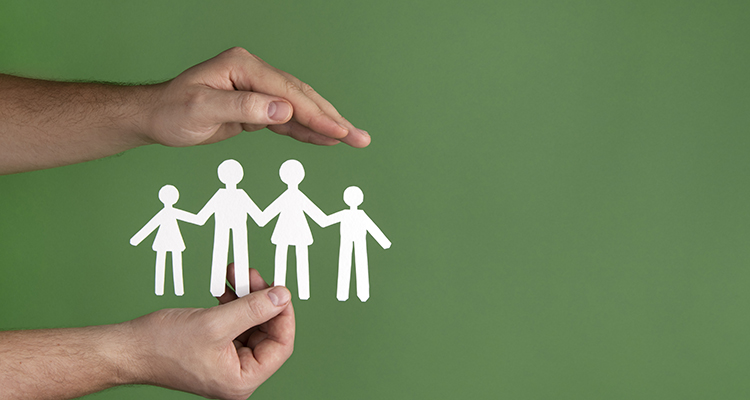
In most cases, your doctor or a sleep specialist will need to request a sleep study for your insurance company to cover it. After an initial doctor’s visit, your healthcare provider may notice significant signs and symptoms of sleep apnea, which would warrant a sleep study test.
Many insurance companies use a tiered system to determine the types of sleep studies that are covered under certain plans. To give you a general idea, here is a breakdown of the types of sleep studies covered by Medicare Part B.
- Type I – Polysomnography test performed in a sleep lab or medical facility under the guidance of a healthcare professional.
- Type II or III – Polysomnography test performed in a sleep lab or medical facility where a healthcare professional may or may not be in attendance.
- Type IV – A sleep study using a device that measures three or more channels including oximetry, airflow, and actigraphy. This type of sleep study can be done at a medical facility or at home. All studies performed in a sleep lab must have a healthcare professional present.
This is purely an example of how some insurance companies handle sleep study coverage, so be sure to check with your specific provider before scheduling a sleep study. For patients with Medicare, if sleep studies are not covered under your plan you’ll be responsible for the entire cost of the test.
Medicare Part B patients are also responsible for the deductible which, as of 2022, averaged $233. If you have coinsurance, it means you can share the cost of the sleep study with the medical insurer. On average, patients are responsible for 20% of the cost of the sleep study and Medicare will cover the remaining 80%. Coverage and guidelines vary from state to state so it’s important you research the rules and regulations in your specific area.
Other major health insurance companies including Aetna and United Healthcare usually provide coverage for sleep studies. However, patients must meet certain requirements to qualify for coverage. For example, some companies require patients to perform an at-home sleep test before approving a sleep study conducted at a sleep center, lab, or another medical facility.
Tips for Saving Money on a Sleep Study
If you suspect that you have an undiagnosed sleep disorder and could benefit from a sleep study but are worried about the cost, there are a few things you can do. For many people, an at-home sleep study is usually the most affordable option so, if possible, try this type of test first. Depending on the type and condition of the equipment, at-home, and online sleep studies can cost anywhere from $100 to $500.
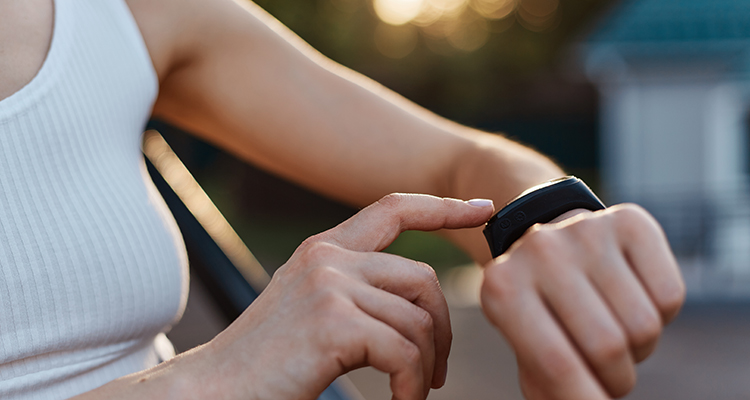
Here are some of the most common devices used for conducting at-home sleep studies.
- Effort belt – attaches to your chest and measures respiration
- Breathing sensors – nasal prongs that are inserted into the nostril and used to measure air pressure
- Sleep tracker – This device can be a bed sensor, placed on a bedside table, or worn and is used to measure your body position, oxygen levels, heart rate, and stages of sleep.
- Pulse oximeter – Placed on your finger, toes, nose, or finger, this device measures the saturation of oxygen in your red blood cells.
Your healthcare provider can suggest which type of sleep study and what equipment you need based on your symptoms. They’ll also tell you what data and information to log and then schedule an appointment to discuss the results and make a diagnosis. If your symptoms are so severe that your doctor recommends a sleep lab, check the prices at different clinics until you find something reasonable and affordable.
Some medical facilities offer free or affordable services for sleep studies. Check the HRSA (Health Resources Services Administration) directory for centers near you.
The best way to save money on a sleep study is to improve your sleep quality and overall health so that you don’t need a test at all. You can start by making these minor changes that will have a big impact.
- Lose weight
- Get adequate exercise
- Set a sleep schedule
- Adopt a healthy winddown routine
- Create a calming sleep environment
- Reduce stress using meditation and mindfulness
- Avoid exposure to blue light before bed
- Treat another underlying health issue that may be contributing to your sleep troubles
Is a Sleep Study Worth the Cost?
When determining if the cost of a sleep study is worth it, you have to remember that this is your health we’re talking about. Certain sleep disorders like sleep apnea can actually be life-threatening. Without adequate or sufficient sleep, you can also incur a litany of other health issues and complications including heart disease, diabetes, certain cancers, and mental health conditions like chronic stress, depression, and anxiety.
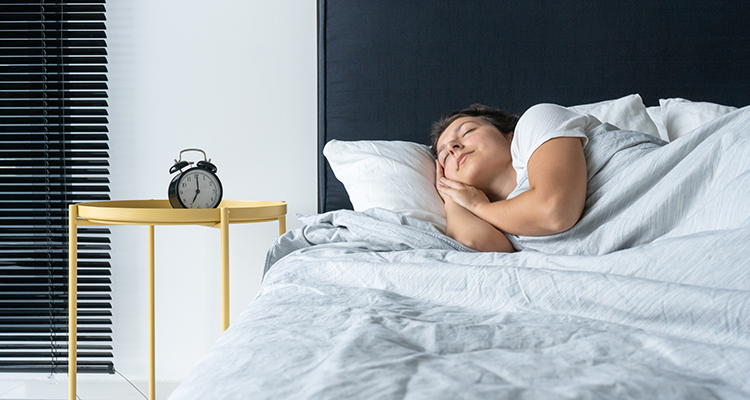
Left untreated, lack of sleep can negatively impact all aspects of your life. So, the short answer is yes! For many people, the cost of a sleep study is well worth it in the long run.
Signs You Might Benefit from a Sleep Study
When it comes time to weigh the pros and cons of undergoing a costly sleep study, it’s important to understand how serious your symptoms are. While chronic sleep deprivation for any reason can be dangerous, certain symptoms are more serious than others.
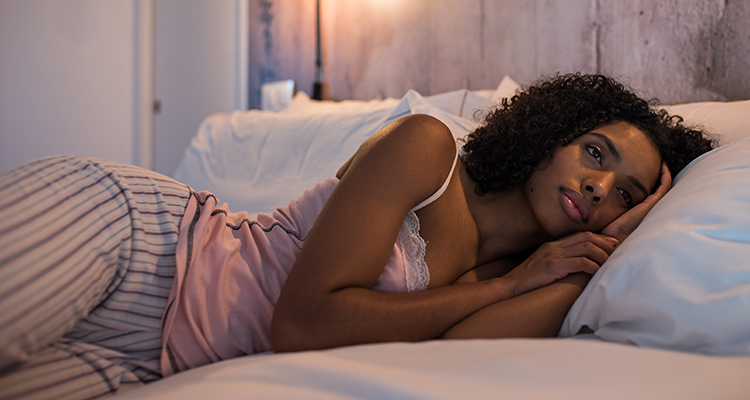
If you’re experiencing any of these symptoms, it may be in your best interest to visit a healthcare provider sooner rather than later and discuss sleep study options.
- You experience excessive snoring, gasping for air, or shortness of breath while sleeping
- You wake feeling groggy, drowsy, and disorientated
- You’re overweight or at a higher risk of developing diabetes or heart disease
- Lack of sleep is causing safety issues or concerns during the day
- You feel an overwhelming need to sleep during all hours of the day
- You’re experiencing dramatic mood swings or increased stress, anxiety, or depression related to lack of sleep
It’s important to discuss all of these symptoms with a healthcare professional so they can make an accurate diagnosis and determine whether or not you qualify for a sleep study.
Make Sleep (and yourself) a Top Priority
Achieving adequate rest at night is about more than just getting your beauty sleep. Sufficient sleep allows your brain and body to rest, recover, and repair itself. It’s when your muscles replenish and your brain makes important cognitive connections that affect memory and daily performance.
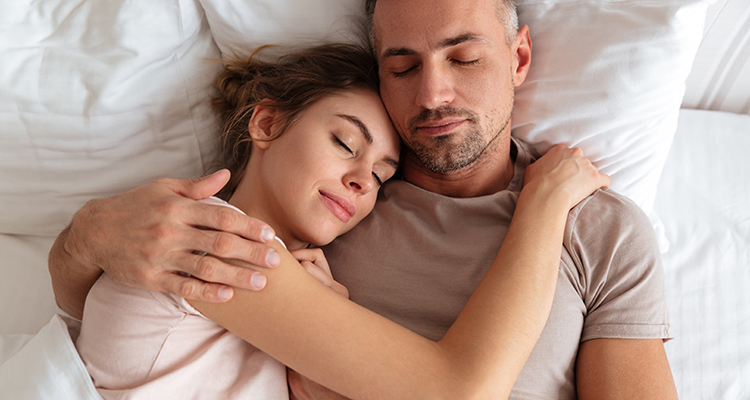
If you suspect that you’re not getting sufficient sleep and the cause is an undiagnosed sleep disorder, you may be a good candidate for a sleep study. Understanding the financial hurdle you’re up against can help you better prepare for what a sleep test will cost you. Consider an at-home test for a fraction of the price as a starting off point.
You can also make subtle changes to your lifestyle that support quality sleep and overall good health. Incorporating CBTi practices into your daily life is a good place to start. Click here to learn how!


